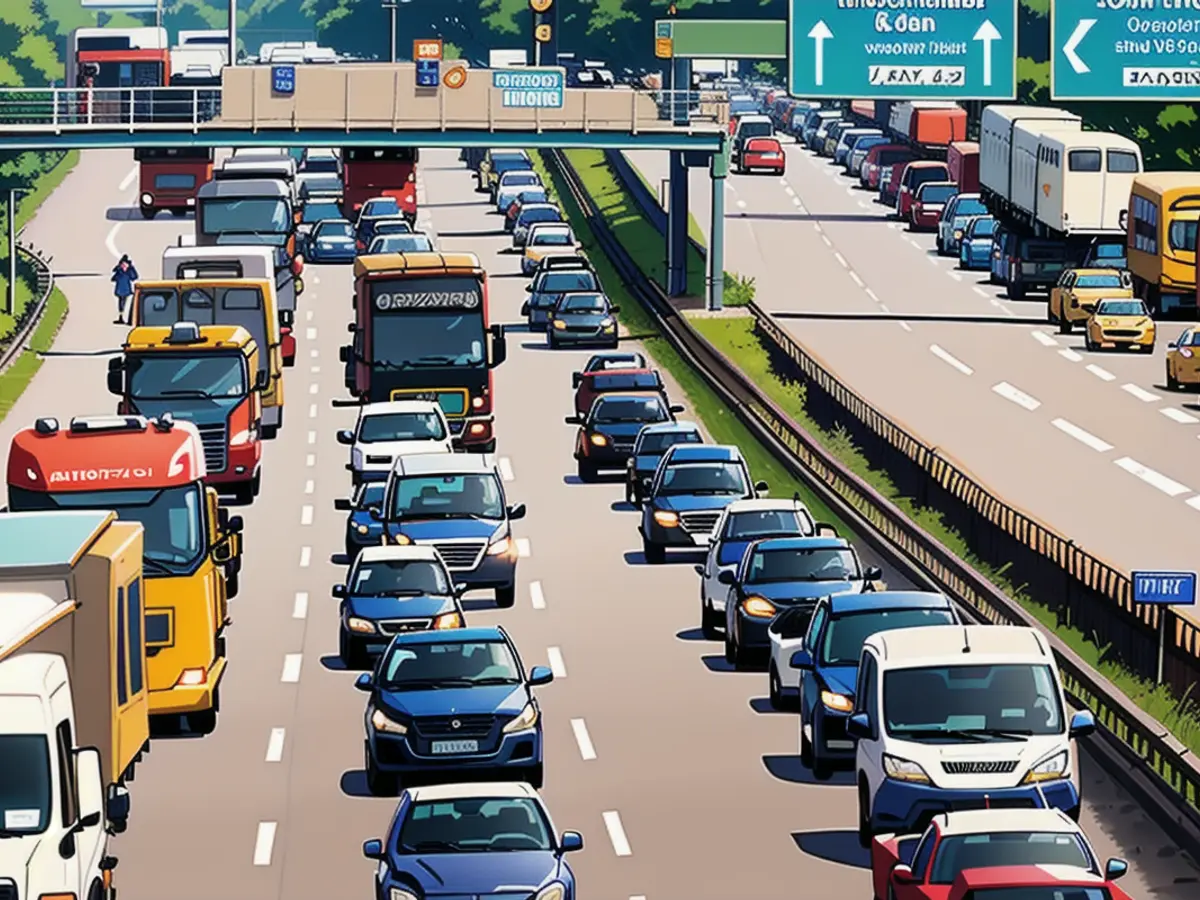Approximately 450,000 people who travel from east to west daily.
Numerous professionals are abandoning their homes in the federal states created more recently to seek employment in western Germany. Across the nation, the trend of individuals traveling long distances for work continues to increase. Left-leaning politician Korte is pressing for the implementation of mobility allowances and improvements to local public transportation.
The number of individuals traveling from east to west has surged in the years since German reunification. In the most recent year available, approximately 447,000 individuals had their main residence in the eastern states but were employed in the western regions - a considerable increase from ten years prior when the figure was about 400,000. Additionally, the number of those traveling from west to east has significantly grown, rising from roughly 118,000 in 2013 to 235,000 ten years later.
"The number of cross-border commuters has reached a fresh all-time high," asserted Korte. "An increasing number of people are being compelled to travel significant distances to get to their jobs." Korte, an MP representing the Left Party and based in Saxony-Anhalt, lamented the broken promises of thriving landscapes in the east.
Numerous studies have indicated that the overall rate of commuting has gone up. As of June 30, 2022, there were around 20.3 million people whose employment was subject to social insurance contributions, with 60% of them being commuters. Over 7.1 million drove more than 30 kilometers to work, and nearly 4 million traveled more than 50 kilometers. However, this does not necessarily imply that these distances are being traveled daily, especially during periods when remote work is more prevalent. Authorities asserted that more flexible work hours would make smaller towns more desirable places to live.
Urgent expansion of local transit
Despite these developments, Korte emphasized the downsides of commuting: "The data suggests that we're moving further away from the desired shift towards more environmentally sustainable modes of transportation, not closer." The current system of commuter allowances is biased in favor of higher-earning individuals. "Instead of a commuter allowance, we require an allowance for mobility that is the same for all commuters, independent of their income and amounting to a set amount per kilometer of their journey," Korte maintained.
Concurrently, Korte proposed a substantial upgrade to local public transportation infrastructure in the region, along with greater assistance for the eastern parts of the country, "so as to lessen the amount of traffic caused by commuters and foster a shift to buses, trains, and bicycles."
Read also:
- Lack of snow also opens up new opportunities for winter tourism
- Abrupt end to e-car subsidies
- The chemical industry has little confidence
- Intersport boss hopes for sales boom through sporting events
In light of the increasing number of commuters from East Germany to the western regions, the Federal Employment Agency should consider providing a fair commuting allowance to help alleviate the financial burden. The urgent expansion of local transit in East Germany could also encourage more individuals to use eco-friendly modes of transportation for their daily commute, reducing traffic congestion in local areas.
Source: www.ntv.de








